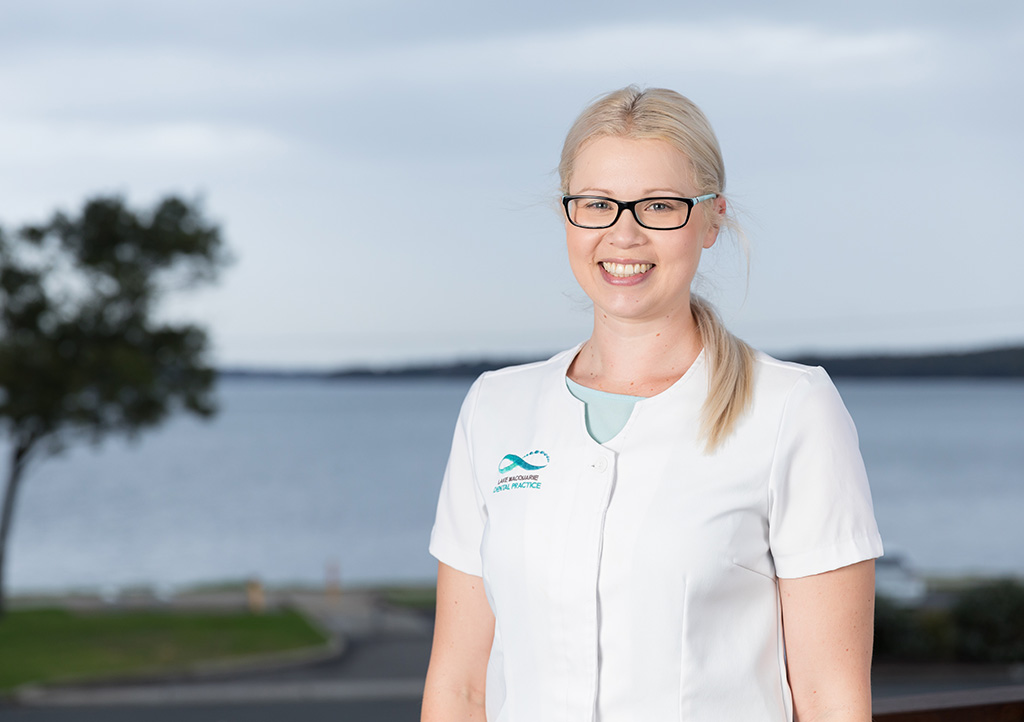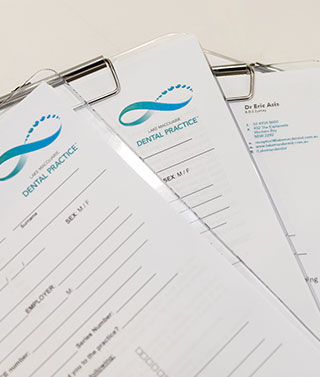FAQs
FAQs
Our Frequently Asked Questions
Why is my Dentist asking to take an X-Ray? Do I need it?
Why are my gums bleeding, should they be bleeding?
No, bleeding gums can be a sign of gingivitis or gum disease. You should make an appointment to visit us so that we can assess your particular situation.
One thing is for sure – healthy gums don’t bleed!
Medical studies have shown the link between gum disease, Diabetes and Heart problems.
If your gums are bleeding after you have brushed your teeth you are showing the early stages of gum disease.
Plaque that harbours bacteria can get in under the gum line of your tooth and can start weakening and softening your gums. Because it’s under the gum line you can’t always see it and unlike tooth decay gum disease doesn’t usually hurt or cause pain. When you brush, the infected gums are irritated to the point that the weak membranes are broken causing slight bleeding. Pain is not always associated with bleeding gums .
The good news is that we can treat it adequately and bring your mouth back to its normal healthy condition.
Are electric toothbrushes better than manual brushes?
Will teeth whitening harm my teeth and gums?
What should I do when I have a toothache?
Are mouth guards important?
Anyone playing sport or training can benefit from wearing a custom made, correctly fitted mouthguard to protect teeth against injury. Over the counter mouth guards do not offer the snug, comfortable fit that a custom mouthguard can nor can they offer an adequate level of protection. Teeth are here to last you a lifetime they need proper protection.
How often should I change my toothbrush and why?
The other reason to change them regularly is that they are a breeding ground for germs, fungus and bacteria which after a while can build up to significant levels. They can also spread cold and flu viruses through families when stored together, infecting adjacent toothbrushes.
Toothbrushes also harbour the bacteria that cause cold sores and ulcers. If you are susceptible to ulcers and cold sores you should also change your toothbrush more regularly to avoid re-infecting other parts of the mouth and possibly other members of the family.
After using a toothbrush, rinse it well under running water and store it in an upright position allowing it to dry out. Try and keep your toothbrush from touching others when it is stored.
When should my child begin to see the dentist?
Dental visits commence at 12 months as this is the opportunity we have to detect early signs of nursing decay and assist with the prevention of these problems.
Children who have regular check ups and are comfortable with visiting the dentist have fewer dental problems. During the check up, we will assess your child’s risk of dental problems and clean your child’s teeth if necessary. We will advise you of any treatment, if it is needed.
What causes decay?
Poor Oral Hygiene as well as weak tooth structure can also be factors in tooth decay.
Bacteria that have settled on a tooth feed on sugar. They multiply themselves so that there are even more of them, the bad news is when bacteria and sugar get together a chemical reaction occurs that produces acid which eats away at the enamel of the tooth. The more sugar we eat results in more bacteria which produces more acid which increases the chance of decay.
Fluoride helps strengthen tooth enamel making it harder for the acid to eat its way into the tooth but once the decay process has started it accelerates at a rapid rate. After eating through the enamel the decay then attacks the softer dentine. If left untreated, the decay will consume the tooth eating its way further down to the nerve, ouch!
It is therefore important to try and limit the amount of sweet foods and drink that we consume and to brush our teeth shortly after every meal – including lunch.
Wisdom Teeth – who needs them?
Back in the old days when we used to have much coarser diets, our back teeth would wear away leaving room for the wisdom teeth to come through. In modern times, with diets that are less coarse, very few people actually have enough room for their wisdom teeth to come through.
Some people believe that if wisdom teeth don’t erupt, it’s all right to leave them there. If you can’t see them and they don’t hurt why worry about them. One of the main problems concerning wisdom teeth is that they can become impacted – that is they only partially erupt or they get trapped or stuck in the jaw.
Will RCT treatment hurt?
Our Dentistry Services

Meghan Bakarich
Dentist
Dr Meg grew up in Newcastle, and originally studied Pharmacy at Newcastle University, but after deciding it was not the best fit for her, she moved to the Gold Coast to study Dentistry at Griffith University. After graduating she relocated back to Newcastle, so she could raise her young family. Meg started working here at Lake Macquarie Dental Practice in December 2017 after working for several years in Nelson Bay. Meg always likes to make sure her patients feel comfortable and have a better understanding of their oral health. She strives to give every patient the best possible care with her attention to detail. Meg is currently working part time whilst also looking after her two young children.
When not at work, Meg is usually at kids’ playgrounds, shopping, or walking along the beach.
Book An Appointment Online Today!
Contact Lake Macquarie Dental Practice
402 The Esplanade
Warners Bay
NSW 2282
Call Us
4958 8600
Email Us
reception@lakemacdentist.com.au
Monday to Friday
8:30AM - 5:30PM
Open late Thursday nights



